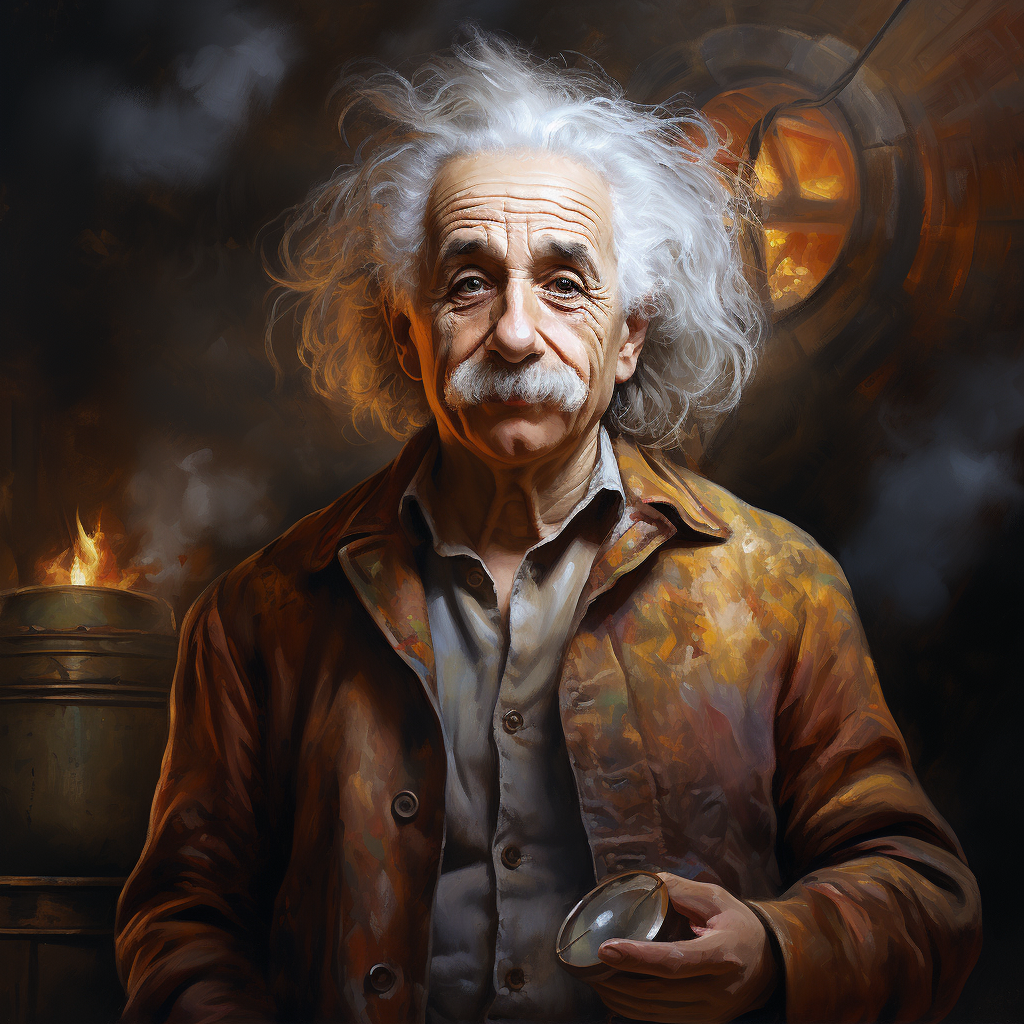Philosophy and literature are two of the most important forms of art. They both deal with the human condition, and can help us to understand ourselves and the world around us better.
In this article, we will look at some of the most famous masterminds in both philosophy and literature. We will learn about their life and their work, and see how they have helped to shape our understanding of the world.
So, without further ado, let’s begin with some of the most famous philosophers of all time.
Table Of Contents.
- Famous Philosophers
- Famous Writers
- Famous Scientists
Famous Philosophers

Famous Philosophers:
1. Plato:
– Plato was a renowned Greek philosopher and the founder of the Academy in Athens, the first institution of higher learning in the Western world.
– His philosophical ideas were deeply influential, particularly his theory of forms and his belief in the immortality of the soul.
– One of his most well-known works is “The Republic,” in which he outlines his vision of an ideal society governed by philosopher-kings.
2. Socrates:
– Socrates was an ancient Greek philosopher who is best known for his Socratic method of questioning, which aimed to stimulate critical thinking and self-discovery in his students.
– He challenged conventional wisdom and encouraged individuals to question their own beliefs.
– Socrates’ influential teachings and his refusal to compromise his principles eventually led to his trial and execution.
3. Aristotle:
– Aristotle, a student of Plato, was a Greek philosopher and scientist who made significant contributions to a wide range of fields, including logic, ethics, politics, and biology.
– His works, such as “Nicomachean Ethics” and “Politics,” continue to be studied and debated to this day.
– Aristotle’s systematic approach to knowledge laid the foundation for Western philosophy and played a crucial role in the development of the scientific method.
💡 key Takeaway: Plato, Socrates, and Aristotle are among the most influential philosophers in history. Their ideas continue to shape our understanding of the world and have had a profound impact on various disciplines, including philosophy, politics, and ethics.
Plato
Plato is widely regarded as one of the most influential philosophers in history. Born in Athens, Greece, in 427 BCE, he was a student of Socrates and the teacher of Aristotle. Plato’s philosophies explored a wide range of topics, including ethics, politics, metaphysics, and epistemology. His most famous work, “The Republic,” delves into his vision of an ideal society governed by philosopher-kings. Plato’s dialogues, written in the form of conversations between Socrates and other characters, are known for their Socratic method of questioning and critical thinking. One of his most famous quotes is, “At the touch of love, everyone becomes a poet.” His contributions to philosophy and literature have had an enduring impact on Western thought and continue to be studied and debated to this day.
💡 key Takeaway: Plato’s philosophical writings and teachings have made him one of the most influential figures in the history of philosophy.
Socrates
Socrates, the renowned Greek philosopher, is considered one of the greatest masterminds in the history of philosophy. His Socratic method of questioning and inquiry revolutionized the field, challenging conventional wisdom and promoting critical thinking. Socrates believed in the pursuit of wisdom and the examination of one’s own beliefs and values. This famous philosopher emphasized the importance of self-reflection and the quest for knowledge. He famously stated, “An unexamined life is not worth living,” highlighting the significance of introspection and understanding oneself. Socrates’ contributions to philosophy continue to inspire and influence scholars and thinkers to this day.
💡 key Takeaway: Socrates, the influential Greek philosopher, introduced the Socratic method and emphasized self-reflection and the pursuit of wisdom. His ideas still resonate in the world of philosophy.
Aristotle
Aristotle: The Brilliant Mind in Philosophy
Aristotle, the ancient Greek philosopher, stands as one of the most influential figures in the realm of philosophy. With his vast intellect and insightful observations, he made significant contributions to various areas of knowledge.
1. Expertise in Ethics and Virtue Ethics:
Aristotle’s exploration of ethics and virtue ethics shaped the way we think about moral philosophy. He emphasized the importance of cultivating virtuous character traits to lead a fulfilling life. As he famously wrote in his work “Nicomachean Ethics,” “We are what we repeatedly do. Excellence, then, is not an act, but a habit.”
2. Noteworthy Works:
Aristotle’s extensive body of work encompasses a range of subjects, from politics and metaphysics to biology and rhetoric. His comprehensive treatises, such as “Metaphysics,” “Politics,” and “Poetics,” continue to be studied and referenced in academic and intellectual circles.
3. Influence on Science and Logic:
Aristotle’s impact extends beyond philosophy, as he delved into the fields of biology, physics, and logic. His systematic approach to studying the natural world laid the groundwork for scientific inquiry for centuries to come. Aristotle’s syllogistic reasoning, with its emphasis on deductive reasoning and logical consistency, greatly influenced the development of formal logic.
In Aristotle, we find a profound intellect whose ideas continue to shape our understanding of philosophy, ethics, science, and logic. His emphasis on cultivating virtuous character traits, his comprehensive writings, and his contributions to scientific inquiry all contribute to his enduring legacy.
💡 key Takeaway: Aristotle, the philosophical genius, leaves an indelible mark in the fields of ethics, metaphysics, politics, and science, shaping our understanding of these disciplines to this day.
Famous Writers

Famous Writers:
1. William Shakespeare: Considered the greatest playwright in history, William Shakespeare’s works continue to captivate audiences centuries after his death. His plays, including “Romeo and Juliet,” “Macbeth,” and “Hamlet,” explore timeless themes of love, betrayal, and human nature. Shakespeare’s mastery of language, poetic verse, and complex characters have solidified his status as an unparalleled genius in the world of literature.
2. J.R.R. Tolkien: Known for his epic fantasy novels, J.R.R. Tolkien created the mythical world of Middle-earth in “The Lord of the Rings” series. His detailed world-building, intricate plots, and richly developed characters have made Tolkien a revered figure in the realm of fantasy literature. Through his writings, Tolkien explored profound themes such as heroism, the battle between good and evil, and the power of friendship.
3. Jane Austen: A pioneer of romantic fiction, Jane Austen’s novels, such as “Pride and Prejudice,” “Sense and Sensibility,” and “Emma,” have become timeless classics. Austen’s keen observations of social dynamics, witty dialogue, and compelling storytelling have made her one of the most beloved writers in English literature. Her works continue to resonate with readers, offering insights into relationships, societal norms, and the pursuit of happiness.
💡 key Takeaway: These famous writers, including William Shakespeare, J.R.R. Tolkien, and Jane Austen, have left an indelible mark on the world of literature with their compelling narratives, intricate characterizations, and enduring themes. Their works continue to inspire and captivate readers, making them masterminds of the written word.
William Shakespeare
William Shakespeare is widely regarded as one of the greatest playwrights and poets of all time. His works, such as Hamlet, Romeo and Juliet, and Macbeth, have had a significant impact on literature and continue to be studied and performed today. Shakespeare’s writing style is characterized by his inventive use of language, compelling characters, and exploration of universal themes. His plays often delve into the complexities of human nature, tackling topics such as love, power, and morality.
Shakespeare’s influence extends beyond the realm of literature. His words and phrases have become ingrained in the English language, with countless idioms and expressions originating from his works. For example, phrases like “all’s well that ends well” and “fair play” are part of our everyday vocabulary.
In addition to his writing prowess, Shakespeare’s ability to capture the human experience and portray complex emotions continues to resonate with audiences of all ages. His works are performed around the world, showcasing the enduring appeal and relevance of his storytelling.
It is worth noting that while Shakespeare’s plays are known for their universal themes, they are also products of their time. The Elizabethan era in which he lived greatly influenced his works, and his plays often reflect the political and social context of the period.
Despite living more than four centuries ago, Shakespeare’s impact on literature, language, and the arts is undeniable. His legacy as a mastermind in both philosophy and literature continues to inspire and captivate audiences worldwide.
💡 key Takeaway: William Shakespeare, with his innovative use of language and exploration of universal themes, remains a prominent figure in both philosophy and literature, leaving an indelible mark on the world of arts and culture.
J.R.R Tolkien
J.R.R Tolkien:
J.R.R. Tolkien, a renowned writer and scholar, is best known for his literary masterpiece, “The Lord of the Rings.” Born in 1892 in South Africa, Tolkien’s family moved to England when he was young. His deep passion for language and mythology laid the foundation for his extraordinary storytelling abilities.
1. Background and Influences:
Tolkien’s love for languages began at an early age, and he studied philology at the University of Oxford. He drew inspiration from various mythologies, particularly Norse and Anglo-Saxon, and incorporated their rich tales into his works. His exploration of ancient texts and sagas profoundly shaped his writing style and helped him create incredibly immersive worlds.
2. Middle-earth and The Lord of the Rings:
“The Lord of the Rings” trilogy, along with “The Hobbit,” is Tolkien’s most celebrated work. Set in the mythical world of Middle-earth, these epic fantasy novels captivated readers with their intricate plots, vivid descriptions, and well-developed characters. Tolkien’s exceptional storytelling skills brought to life a mystical realm filled with elves, dwarves, wizards, and the iconic creatures known as hobbits.
3. Themes and Legacy:
Tolkien’s works were not merely tales of adventure; they tackled significant themes such as courage, friendship, sacrifice, and the battle between good and evil. His narratives emphasized the importance of preserving nature and resisting the corrupting forces of power. The depth and richness of Tolkien’s storytelling have inspired countless writers, both within the fantasy genre and beyond.
Tolkien’s impact on literature and popular culture cannot be understated. His intricate world-building, compelling narratives, and attention to detail continue to enchant readers of all ages. Tolkien’s legacy as one of the greatest masterminds in literature remains unparalleled.
💡 key Takeaway: J.R.R. Tolkien’s extraordinary imagination and storytelling skills have immortalized him as one of the most influential and beloved writers of all time.
Jane Austen
Jane Austen: A Visionary Writer Who Transformed Literature
Jane Austen holds a significant place in the history of English literature as one of the most influential and insightful writers of her time. With her sharp wit, social observations, and nuanced character portrayals, Austen captured the essence of the Regency era and provided a profound commentary on societal norms and expectations. Her works, including “Pride and Prejudice,” “Sense and Sensibility,” and “Emma,” continue to captivate readers worldwide.
1. Literary Prowess:
– Austen’s storytelling abilities are unparalleled, weaving intricate plots filled with romance, social commentary, and personal growth.
– Her use of irony and satire adds depth to her narratives and exposes the flaws and follies of the time.
– Austen’s characters leap off the page, with their distinct personalities and struggles, allowing readers to form deep connections with them.
2. Social Critique:
– Austen tackled the rigid social structures of her era, shedding light on the constraints placed upon women and the necessity of marrying well.
– Through her heroines, she championed individuality, resilience, and the pursuit of true love, challenging the expectations and limitations imposed by society.
3. Lasting Legacy:
– Austen’s impact on literature cannot be overstated, with her works inspiring countless adaptations, sequels, and fan theories.
– Her portrayal of love, societal pressures, and personal growth remains relevant across generations, ensuring her enduring popularity.
In the words of Austen herself, “The person, be it gentleman or lady, who has not pleasure in a good novel, must be intolerably stupid.” Her ability to craft engaging stories with timeless themes has solidified her position as a literary mastermind.
💡 key Takeaway: Jane Austen’s talent as a visionary writer lies in her ability to combine literary prowess, social critique, and lasting legacy, making her a beloved figure in the world of literature.
Famous Scientists

Famous Scientists:
1. Albert Einstein: Known for his theory of relativity, Albert Einstein revolutionized our understanding of physics. His groundbreaking work earned him the Nobel Prize in Physics in 1921. Einstein’s quote, “Imagination is more important than knowledge,” highlights his belief in the creative power of the mind.
2. Marie Curie: A trailblazing scientist, Marie Curie made significant contributions to the field of radioactivity. She became the first woman to win a Nobel Prize and the only person to ever win Nobel Prizes in two different scientific fields. Curie’s quote, “Nothing in life is to be feared, it is only to be understood,” reflects her fearless pursuit of knowledge.
3. Charles Darwin: Renowned for his theory of evolution, Charles Darwin laid the foundation for modern biology. His book “On the Origin of Species” introduced the concept of natural selection, transforming our understanding of how species adapt and evolve. Darwin’s quote, “It is not the strongest of the species that survives, nor the most intelligent, but the one most responsive to change,” emphasizes the importance of adaptability in the natural world.
💡 key Takeaway: These famous scientists, Albert Einstein, Marie Curie, and Charles Darwin, made groundbreaking contributions to their respective fields and forever impacted our understanding of the universe, radiation, and evolution.
Albert Einstein
Albert Einstein: The Genius behind the Theory of Relativity
Albert Einstein is widely regarded as one of the most brilliant minds in the history of science. His groundbreaking work on the theory of relativity revolutionized our understanding of the fundamental laws of physics. Born in Ulm, Germany in 1879, Einstein’s early fascination with math and physics set the stage for his extraordinary career.
1. The Theory of Relativity:
– Einstein’s theory of relativity, specifically the special theory of relativity published in 1905, fundamentally changed our understanding of time, space, and gravity. He famously formulated the equation E = mc², which demonstrated the equivalence of energy (E) and mass (m) and provided the foundation for nuclear energy.
– “I have no special talent. I am only passionately curious.” – Albert Einstein
2. The Photoelectric Effect and Quantum Mechanics:
– In 1905, Einstein published his groundbreaking work on the photoelectric effect, which demonstrated the particle-like nature of light and contributed to the development of quantum mechanics. For this discovery, he was awarded the Nobel Prize in Physics in 1921.
– “God does not play dice with the universe.” – Albert Einstein
3. General Theory of Relativity:
– Building upon his special theory of relativity, Einstein developed the general theory of relativity in 1915. This theory expanded our understanding of gravity, positing that massive objects warp the fabric of spacetime, causing objects to move along curved paths.
– “Imagination is more important than knowledge. For knowledge is limited, whereas imagination embraces the entire world, stimulating progress, giving birth to evolution.” – Albert Einstein
💡 key Takeaway: Albert Einstein’s contributions to science, particularly his theories of relativity and his work on quantum mechanics, have had a profound impact on our understanding of the universe. His genius and influential ideas continue to inspire scientists and researchers to this day.
Marie Curie
Marie Curie: A Trailblazer in Scientific Discoveries
Marie Curie was a renowned physicist and chemist, known for her groundbreaking contributions to the field of radioactivity. Born on November 7, 1867, in Warsaw, Poland, Curie’s unwavering dedication and commitment to scientific research have solidified her as one of the most influential figures in the history of science.
1. Early Life and Education:
– Marie Curie, originally named Maria Skłodowska, grew up in an academic household where scientific discussions were commonplace. Her father, a physics and mathematics professor, played a significant role in nurturing her interest in the sciences.
– Despite facing gender barriers to education, Curie’s determination led her to pursue higher studies at the prestigious Sorbonne University in Paris, France. Here, she met her future husband, Pierre Curie, who would become her lifelong collaborator.
2. Discoveries and Contributions:
– Marie Curie’s groundbreaking research on radioactivity earned her two Nobel Prizes. In 1903, she became the first woman to receive a Nobel Prize, jointly awarded with her husband and physicist Henri Becquerel for their significant contributions to the study of radioactivity.
– Curie’s second Nobel Prize, awarded in 1911, recognized her pioneering work on the isolation and characterization of radium and polonium. This made her the first person and the only woman in history to receive Nobel Prizes in two different scientific fields.
3. Legacy and Impact:
– Marie Curie’s contributions revolutionized the understanding of radioactivity and laid the foundation for further advancements in nuclear physics and medicine.
– Her relentless pursuit of knowledge and her groundbreaking discoveries continue to inspire future generations of scientists, particularly women, to push the boundaries of scientific exploration.
(Quotes):
– “I was taught that the way of progress was neither swift nor easy.” – Marie Curie
– “Nothing in life is to be feared, it is only to be understood. Now is the time to understand more so that we may fear less.” – Marie Curie
💡 key Takeaway: Marie Curie’s unwavering dedication and groundbreaking discoveries in the field of radioactivity have solidified her status as an influential figure in scientific history. Her legacy continues to inspire aspiring scientists, particularly women, to break barriers and pursue their passion for knowledge with utmost determination and perseverance.
Charles Darwin
Charles Darwin:
Charles Darwin was a renowned scientist and naturalist who revolutionized our understanding of the theory of evolution. Here is a closer look at his life and contributions:
Early Life and Education:
– Darwin was born on February 12, 1809, in England.
– He showed a keen interest in nature and the natural world from a young age.
– Darwin attended the University of Cambridge, where he studied natural history and geology.
The Voyage of the Beagle:
– One of Darwin’s most significant achievements was his voyage on the HMS Beagle from 1831 to 1836.
– During this expedition, Darwin was able to make observations and collect specimens that would later form the basis of his groundbreaking theory of evolution.
– His experiences during the voyage led him to question traditional beliefs about the origin and diversity of species.
The Theory of Natural Selection:
– Darwin’s most famous work is his book “On the Origin of Species,” published in 1859.
– In this seminal work, he presented the theory of natural selection, which explains how species evolve and adapt to their environments over time.
– Darwin’s theory challenged prevailing religious and scientific beliefs, sparking intense debate and controversy.
Legacy and Impact:
– Darwin’s theory of evolution has had a profound impact on our understanding of biology and the natural world.
– His work laid the foundation for the field of evolutionary biology, and his ideas continue to be supported by a vast body of evidence.
– Darwin’s contributions to science and his commitment to rigorous observation and empirical evidence remain an inspiration to scientists and thinkers today.
💡 key Takeaway: Charles Darwin, a renowned scientist and naturalist, revolutionized our understanding of evolution through his theory of natural selection. His work continues to shape the field of evolutionary biology and has had a lasting impact on our understanding of the natural world.
Conclusion

Conclusion:
Philosophy and literature are some of the most complex and thought-provoking subjects out there. If you’re looking to up your reading game, you’ll want to learn from some of the most brilliant minds in the business. In this post, we’ll take a look at some of the most famous thinkers in both fields and see how their work has helped shape the way we think. We’ll also explore some of the key concepts that these masters have explored, and see how they’ve helped shape the way we view the world. We hope you enjoy this post and that it helps you to deepen your understanding of these fascinating fields.
Join Our Discord HERE for Free Art and NFT Game Items
🌐 https://discord.gg/4KeKwkqeeF
🚤 https://opensea.io/EyeOfUnity
🎭 https://rarible.com/eyeofunity
🍎 https://magiceden.io/u/eyeofunity
Other Websites by Eye of Unity:
https://eyeofunity.com
https://meteyeverse.com
https://000arcade.com
https://00arcade.com
https://0arcade.com
https://wealth-financing.com
https://techgenstore.com
https://systementcorp.com
https://affiliatesbonus.com
https://albertbrain.com
https://lastdaystore.com
https://controlsecret.com
https://realufopics.com
https://officialmikemc.com
https://keyselfdefense.com
https://ashleymega.com

